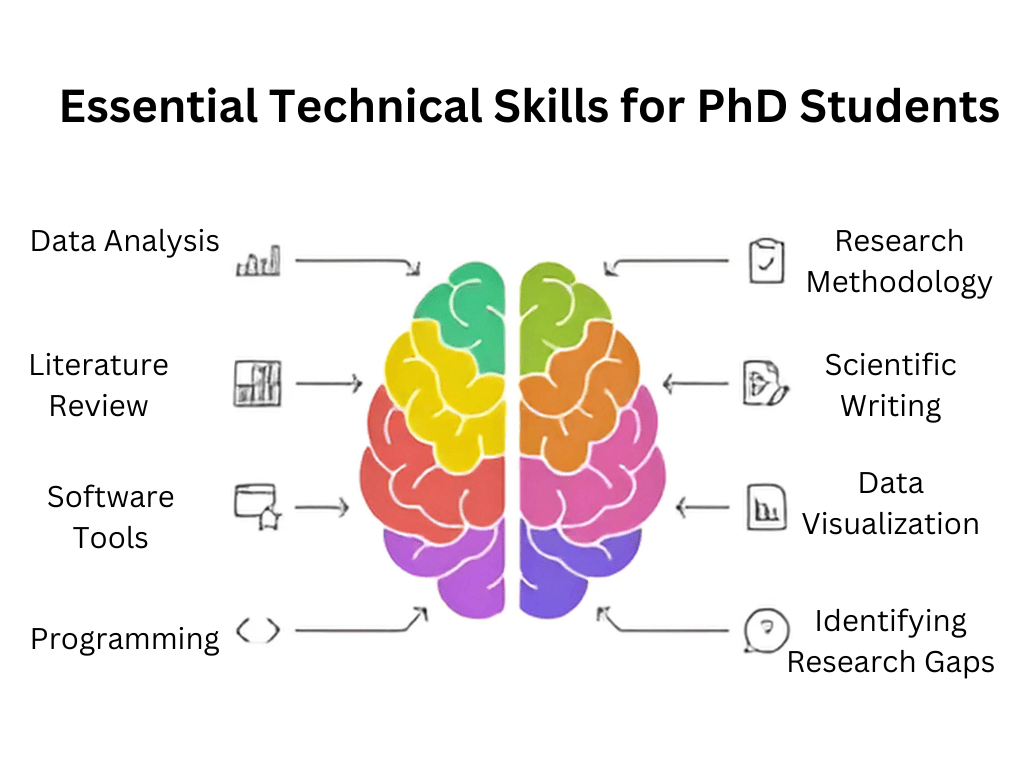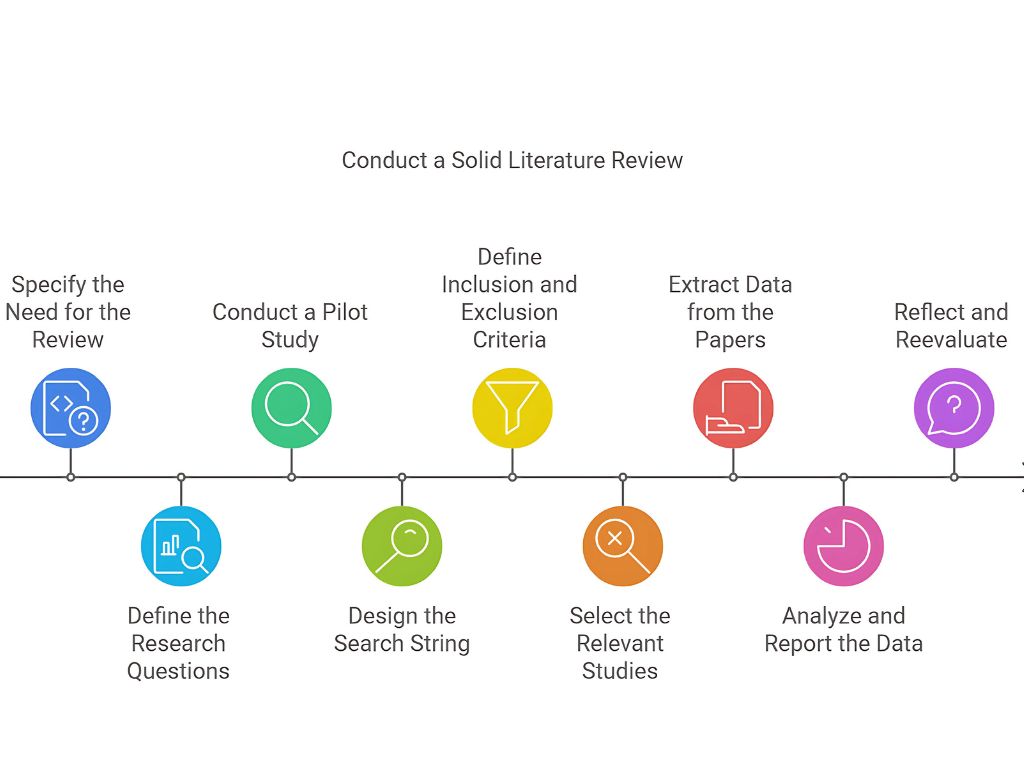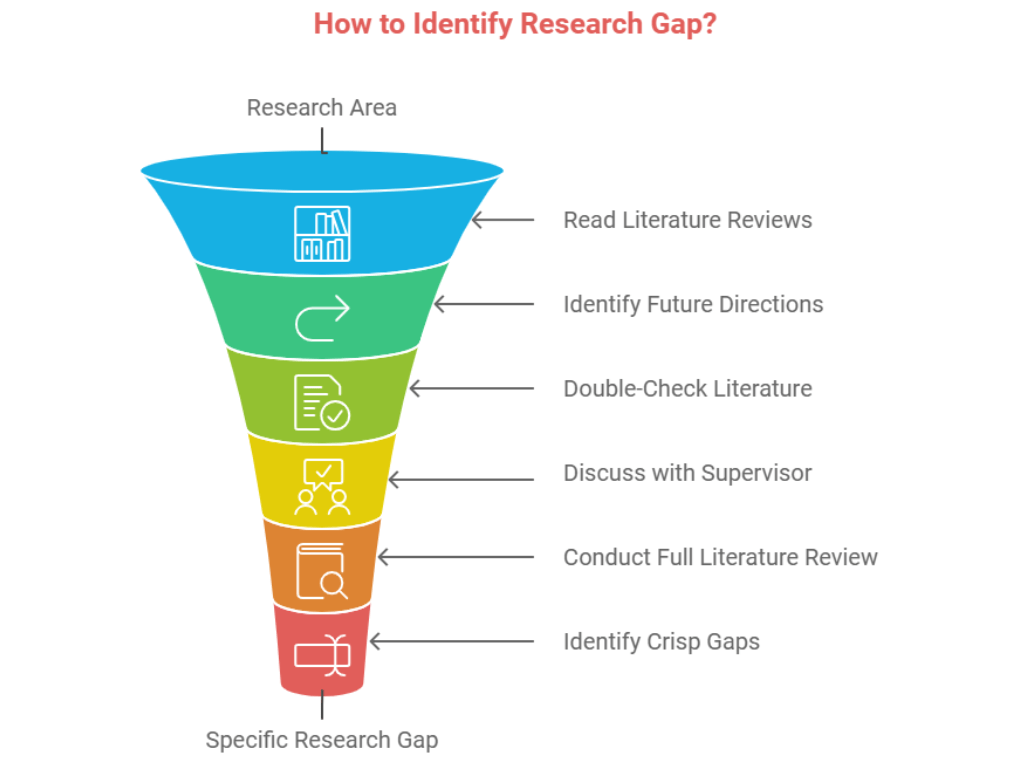As a PhD student, mastering certain technical skills can dramatically accelerate your progress.
It’s not just about completing tasks faster; it’s about increasing the quality and depth of your work, making you a more efficient and effective researcher.
Here are 8 essential skills that can help you supercharge your PhD journey.

1.Learn How to Analyze Data:
Regardless of your research field, data analysis is a fundamental skill. Whether you’re working in the sciences, social sciences, or humanities, your research will require data interpretation. Being proficient in data analysis allows you to uncover patterns, trends, and insights that drive your research forward.
What makes data analysis crucial for PhD students is the ability to view the same data from multiple perspectives. This can lead to new insights, and in some cases, you might find that you can extract enough results for more than one publication from the same dataset.
For example, instead of using your dataset to answer one research question, you could slice it differently to answer a secondary question for a follow-up paper. Tools like SPSS, Excel, R, and Python’s data analysis libraries (Pandas, NumPy) can help you get started. Learn to analyze data from both qualitative and quantitative lenses to make your work stand out.
2. Learn How to Develop Research Methodology
Understanding research methodology is another critical skill for PhD students. You should aim to gain a broad knowledge of both qualitative and quantitative research methods. Though you might specialize in one, knowing how to employ both can open new avenues for interdisciplinary research.
On top of that, designing experiments and selecting the right data collection techniques are vital. Being strategic about your research design ensures that your studies are rigorous, reliable, and reproducible. For instance, a well-thought-out experimental design not only helps you collect better data but also strengthens your overall findings.
Whether you’re conducting surveys, interviews, lab experiments, or fieldwork, your research methodology will define the quality of your results. So take the time to master it early in your PhD journey, as this foundational knowledge will guide every research project you undertake.
3. Learn How to Conduct a Literature Review
In academia, new research is being published constantly, and it’s impossible to read every single paper. This makes mastering literature review techniques essential. The goal is to quickly and efficiently identify the most relevant papers for your work, so you don’t waste time on tangential or outdated studies.
Once you’ve identified key papers, the next step is to extract valuable insights. Look for gaps in the literature, as these could inform the direction of your research. Additionally, being able to critically analyze the strengths and weaknesses of previous studies helps you position your work in the academic conversation.
A pro tip: Use tools like Zotero or Mendeley for managing your references, and consider Litmaps to track citation networks, so you can stay updated on the most recent and relevant studies. Effective literature review skills will save you time and provide a solid foundation for your research.
4. Learn How to Write Scientific Papers
Writing is an integral part of the PhD process, but scientific writing differs from other forms of writing. It requires clarity, precision, and, most importantly, justification. Whether you’re explaining why you chose a specific method or defending your conclusions, everything in scientific writing should be backed up with evidence and reasoned argumentation.
Good scientific writing also involves logical flow. Each section of your thesis or paper should lead smoothly into the next, without abrupt transitions. You need to develop the skill of presenting complex ideas clearly so that even readers outside your field can understand your contributions.
This is where practice makes perfect. You’ll likely rewrite your papers multiple times before submitting them, but the effort will pay off. Strong writing can make the difference between your paper being accepted or rejected by top journals. And remember, writing isn’t just about getting published; it’s about effectively communicating your research to the world.
5. Master Software tools Used in Your Domain
In almost every field of study, there are domain-specific tools that you’ll need to master. Whether it’s simulation software, GIS tools, bioinformatics platforms, or statistical packages, being proficient in these tools will allow you to focus on the intellectual challenges of your research rather than getting stuck in technical details.
Learning these tools early in your PhD will save you a lot of time down the road.
For example, if you’re in biology, mastering software like BLAST or ClustalW for sequence alignment is crucial. In engineering, you might need MATLAB or Simulink. Regardless of your field, get familiar with the software that is commonly used by experts in your area. This will not only make your research more efficient but also boost your confidence in tackling more complex tasks.
6. Learn How to Visualize your Findings
Data visualization is key to communicating your research findings effectively. Whether you’re presenting your work at a conference or writing up your results for publication, you need to know how to visualize your data in a way that makes it easy for others to grasp.
Common forms of visualization include graphs, charts, heat maps, and infographics. However, it’s not just about creating visually appealing graphics; it’s about ensuring that your visualizations accurately convey the data’s underlying patterns and insights. Misleading or unclear visualizations can detract from the quality of your work.
Tools like Python’s Matplotlib or Seaborn, R’s ggplot2, and even Microsoft Excel can help you create clear and informative data visualizations. As you become more comfortable with these tools, you’ll find that effective data visualization not only enhances your research presentation but also helps you see patterns in your own data that might have otherwise been overlooked.
7. Learn Basic Programming as soon as Possible
Learning programming can significantly boost your productivity during your PhD. Even if you don’t consider yourself a programmer, learning basic coding skills in Python or R can save you hours of repetitive work by automating tedious tasks like data cleaning, analysis, and even some aspects of writing.
With just a few lines of code, you can automate data entry or run statistical tests on large datasets, allowing you to focus on more critical aspects of your research. Beyond time-saving, programming gives you the flexibility to customize your tools and workflows to suit your specific research needs.
If you’re new to programming, start by learning the basics of Python, which has numerous libraries designed for data science, machine learning, and statistical analysis. If your field uses R, dive into the basics of that language. Both Python and R are highly versatile and widely used across disciplines.
8. Learn How to Identify Research Gap
Identifying a research gap is often the most challenging part of starting a PhD. A research gap refers to an area that has not yet been explored or sufficiently addressed in existing studies. Finding this gap is crucial because it’s where your work can make the most significant impact.
You should begin learning how to perform gap analysis even before you start your PhD, or at least within the first six months. This can save you from pursuing topics that are either oversaturated or too vague. Tools like Litmaps or Connected Papers can help you visualize the research landscape and identify areas that are underexplored.
Once you’ve identified a gap, your research should aim to address it in a way that adds value to your field. This could involve developing a new methodology, applying existing theories in new contexts, or addressing contradictions in the literature. Whatever the gap, it’s essential to ensure that your research is both relevant and impactful.
In Conclusion
Mastering these eight skills can transform your PhD journey. Not only will they help you complete your work faster, but they will also enhance the quality and depth of your research. While it may seem daunting at first, take a systematic approach to learning these skills, and you’ll find yourself becoming a more capable and efficient researcher. These skills are your toolkit—equip yourself well, and you’ll be able to tackle any challenge that comes your way during your PhD.


